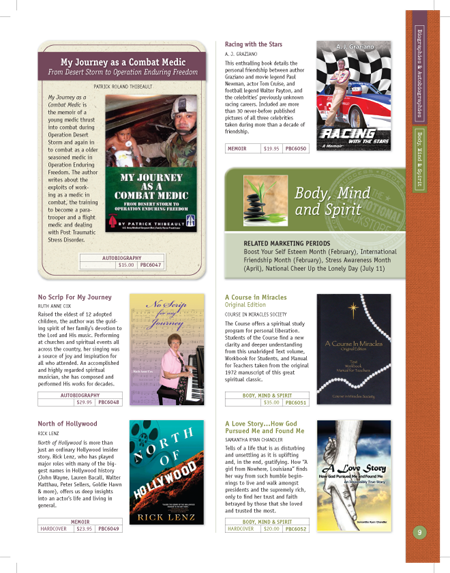Last Updated on January 10, 2024 by David Wogahn
 Two weeks ago I attended a presentation by Brian Jud whose Premium Book Company focuses on special market sales of books. Generally speaking these are bulk or volume sales to businesses, governments, associations and book clubs, or sales to categories of retailers such as gift shops, supermarkets and airport stores. (Basically sales outlets that are not traditional bookstores.)
Two weeks ago I attended a presentation by Brian Jud whose Premium Book Company focuses on special market sales of books. Generally speaking these are bulk or volume sales to businesses, governments, associations and book clubs, or sales to categories of retailers such as gift shops, supermarkets and airport stores. (Basically sales outlets that are not traditional bookstores.)
What indie publisher hasn’t thought about selling thousands of copies of a book in a single order? To paraphrase Steve Martin, “one book, goodbye!”
Of course we know it isn’t that easy. But it also isn’t far-fetched if you do your homework and produce a quality book with targeted appeal. Jud shared a piece of advice that I found golden:
Sell your information, not your book.
That got me thinking that focusing on special market or bulk book sales is like any other marketing or business development opportunity. So rather than share a list of marketers that serve this market, or sources for mailing lists, or stories about how someone sold a book about stain removal to Maytag, I thought I’d instead share the important things to think about if you are considering pursuing special market book sales.
Top 5 Considerations Before Pursuing Special Market Sales
1. Approach special market sales like you would other sales channels. Here are some other sales channels: Amazon.com, libraries, traditional bookstores, international markets, eBook-specific bookstores and direct-to-reader sales. Before you precede make sure you have the time, budget, knowledge and product to be successful. Indie publishers can’t do everything.
2. If you are using print-on-demand (e.g. CreateSpace) to produce print books you’ll most likely have to rethink your printing strategy. That means investing in a print run (inventory) which is the only way to bring per unit costs down to a level where you can make money selling in volume. POD economics rarely work.
3. Special sales are competitive like every other sales channel. Quality of presentation is as important as quality of information. How unique is your content? How easily can you customize it to the needs of an audience? Spend time looking at one of Brian’s book catalogues to get a feel for other books in your category.
4. DIY vs. Outsource the sales process. This is where it can get expensive. You can buy advertising in special catalogues, hire consultants, or spend hours researching and chasing deals on your own. The easiest thing to do is “write a check”, but I question how well the average book performs when simply spending money is the strategy. In my experience business development efforts work best when you take time to learn about the different players and develop a clear idea of who you are selling to before investing in the marketing programs to reach them.
Check out the Insider’s Guide to Large Quantity Book Sales from the Jenkins Group and Jud’s How to Make Money Selling Books.
5. Be prepared to help your sales partner. Whether you outsource or do it yourself, help your buyer understand the benefits or potential uses for your book. Do not expect them to “get it” or figure out on their own how your information (book) can help their customer. You might need to develop special sales collateral. Perhaps a custom cover. Even a sample of a different version of your book. This advice is especially important for indie publishers who don’t yet have an established brand.
The bottom line is that pursuing special market sales should take the same amount of effort and attention you give to other book sales channels. Be sure to prioritize the channels where you have the greatest opportunity for sales.
